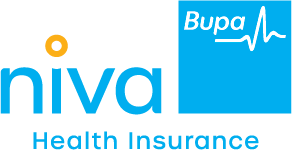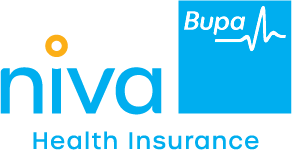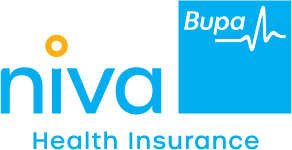Niva Bupa Health Pulse Plan
Choose Best Plan For Self, Family & Parents - Up To 15% Discount*

IRDAI Certified

24x7 Claim Support

Dedicated Manager

100% Transparency

Get Expert Advice
Why Choose Niva Bupa Health Pulse Plan
Health Pulse Policy offers comprehensive coverage for people aged 91 days to 65 years old. As the policy comes with an affordable premium, it is easy on the pocket. With this policy, you can choose between two variants with different sums insured ranging from Rs. 3 lakh to Rs. 25 lakh. The health insurance policy covers a variety of healthcare expenses, including pre-hospitalization and post-hospitalization expenses, in-patient hospitalization expenses, annual health check-up coverage, alternative treatments, home hospitalization expenses, ambulance charges, organ donation charges, pharmacy charges, and diagnostics. It's available on an individual policy and family floater policy basis. Under this policy, you will also receive several additional benefits, including lifetime renewability, tax benefits according to current tax laws, a free look period, No Claim Bonus, refill benefit, etc. To enhance your coverage, you can also add several additional benefits to the policy. In addition, there is a critical illness cover, e-consultations, and personal accident expenses. After a waiting period of 15 days, you can begin receiving coverage benefits under this policy. The Niva Bupa Health Pulse Plan offers customized benefits for you and your family. A sum insured should not exceed Rs. 3 lakhs but can range between Rs. 3 lakhs and Rs. 25 lakhs for individuals and families. Aside from post-hospitalization, prescription drug coverage, daycare, and at-home care, this policy offers many other benefits. The policyholder also receives yearly health check-ups as part of the comprehensive coverage.
Benefits of Niva Bupa Health Pulse Plan
1. Treatment for daycare - Insured Person's Medical Expenses incurred under a Day Care Treatment during the Policy Period following an illness or injury will be reimbursed Injuries. In order to be covered, the following conditions must be met:
a. Medical Practitioners recommend Day Care Treatment in writing as Medically Necessary.
b. The Day Care Treatment would be covered if the Insured Person was admitted for more than 2 hours and if treatment was taken for more than 2 hours Treatment for cancer may include angiography, dialysis, radiotherapy, or chemotherapy.
c. The Insured Person will also be indemnified for their pre-hospitalization and post-hospitalization medical expenses if their claim has been accepted under this benefit.
2. Hospitalisation at home - An Insured Person's Domiciliary Hospitalisation incurred during the Policy Period will be reimbursed on a reimbursement basis only. In order to be covered, the following conditions must be met:
a. As long as the domiciliary hospitalization continues for at least 3 consecutive days, we will pay the medical expenses under this benefit Hospitalisation costs incurred from the first day of domiciliary care
b. In writing, the treating Medical Practitioner confirms that the Insured Person cannot be transferred to another facility due to their medical condition . Neither a Hospital nor the Insured Person is able to find a bed in a Hospital.
3. Medical expenses prior to hospitalization - Insured Person's Pre-hospitalization Medical Expenses incurred as a result of an illness or injury will be reimbursed on a reimbursement basis only. In order to be covered, the following conditions must be met:
a. The claim was accepted under the headings of (Day Care Treatment), (Alternative Treatments), or (Modern Treatments).
b. Inpatient Care and Day Care Treatment are accepted for the same health conditions as pre-hospitalization medical expenses Claim of Alternative Treatments or Modern Treatments.
c. The expenses are incurred after the First Policy with Us is issued. No matter how long the initial waiting period is, it will only be responsible for expenses incurred after the commencement date of the First Policy, regardless of whether any expenses were incurred before then.
d. Physiotherapy expenses incurred prior to hospitalization will also be payable if prescribed in writing by the physician. Treating Medical Practitioners as Medically Necessary Treatment is directly related to the condition that led to hospitalization.
e. Inpatient Care or Day Care Treatment and Alternative Care may reduce the Sum Insured in the Policy Year during which the claim is admitted. Treatments or Modern Treatments claim has been incurred.
4. Medical expenses incurred after hospitalization - The Insured Person will be reimbursed for post-hospitalization medical expenses incurred following an illness or injury on a reimbursement basis only. In order to be covered, the following conditions must be met:
a. An inpatient care claim has been accepted. An outpatient care claim has been accepted.
b. Inpatient or Day Care Medical Expenses are incurred for the same condition for which we accepted inpatient care or daycare services. The claim of Alternative Treatments or Modern Treatments.
c. Expenses will be incurred according to the treating Medical Practitioner's instructions in writing.
d. Medical expenses incurred after hospitalization for physiotherapy will also be reimbursed provided that the treating physician prescribes such physiotherapy in writing as a medically necessary treatment and that it is directly related to the hospitalization.
e. Inpatient Care or Day Care Treatment and Alternative Care may reduce the Sum Insured in the Policy Year during which the claim is admitted. Treatments or Modern Treatments claim has been incurred.
5. Transplantation of living organs - Indemnification is provided for medical expenses incurred for a living organ donor's treatment as an inpatient for organ harvesting. There are certain conditions that need to be met in order to qualify for the above coverage:
a. Donation is in accordance with the Transplantation of Human Organs Act 1994 and its amendments thereto, and the organ is for use by the insured.
b. Obtain a written certification from a Medical Practitioner that the organ transplant is Medically Necessary Treatment.
c. The recipient Insured Person's claim for inpatient care has been accepted by the insurer.
6. Treatments that are alternative - These covers the Medical Expenses incurred during the Policy Period for the Insured Person's Hospitalisation for Inpatient Care In Ayurveda, Unani, Siddha, and Homeopathy. The conditions are:
a. Treatment should be provided in an AYUSH hospital. AYUSH Hospitals provide medical, surgical, and para-surgical treatment AYUSH Medical Practitioners perform procedures and interventions such as:
i. Government-run AYUSH hospitals
ii. An AYUSH teaching hospital affiliated with a college recognized by the Central Government, the Central Council of Indian Medicine, or the Central Council of Homeopathy
iii. An AYUSH hospital that is standalone or co-located with a healthcare facility of any recognized system of medicine, and is registered with the local health authority It must comply with all the following criteria and be supervised by a qualified registered AYUSH Medical Practitioner wherever applicable:
- A minimum of five inpatient beds
- A qualified AYUSH Medical Practitioner on call round-the-clock
- A section dedicated to AYUSH therapy as needed and/or an operating room equipped for surgical procedures
- The insurance company's authorized representative should have access to the daily records of the patients.
- As mentioned above, AYUSH hospitals must also obtain pre-entry certificates from the National Accreditation Board for Hospitals and Healthcare Providers (NABH) or state-level certificates issued by the National Health Systems Resources Centre (NHSRC) under National Quality Assurance Standards (NQAS).
b. Under this benefit, pre-hospitalization medical expenses for up to 60 days prior to the Insured Person's admission will also be covered, as well as post-hospitalization medical expenses for up to 90 days after the Insured Person's discharge.
c. As per the applicable terms and conditions, the Insured Person's non-allopathic treatment will only be covered under (Alternative Treatments).
7. Getting a health checkup - If the Policy is Renewed without a break or if it remains in force for the 2nd and 3rd Policy Years in the 2-year or 3-year Policy Periods (if applicable), then the Insured Person is entitled to a health check-up, starting in the 2nd Policy Year, via the Cashless Facility. The following conditions must be met in order to receive the coverage described above:
a. Only Service Providers impaneled with Us can arrange health check-ups.
b. Insured Persons covered under the policy who are adults are entitled to a health check-up.
c. In the first Policy Year when the Insured Person becomes an Insured Person, the Insured Person will not be eligible for a health check-up Policy.
d. Unused Health Check-ups cannot be carried forward.
e. This benefit covers Complete Blood Count, Urine Routine, ESR, HBA1C, S Cholesterol, Sr High-Density Lipoprotein, and Kidney Function Test.
Inclusions of Niva Bupa Health Pulse Plan
1. Treatment of mental disorders - You are covered for the expenses incurred by the Insured Person for Inpatient treatment for Mental Illness up to the limit specified in your policy schedule. The conditions are:
a. The treatment of mental disorders is only covered when a qualified psychiatrist or a professional registered with the relevant State Authority diagnoses the patient or if the professional has a postgraduate degree (Ayurveda) in Mano Vigyan Avum Manas Roga or a postgraduate degree (Homoeopathy) in Psychiatry or a postgraduate degree (Unani) in Moalijat (Nafasiyatt) or a postgraduate degree (Siddha) in Sirappu Maruthuvam.
b. Medically necessary treatment is the reason for the hospitalization.
c. The treatment should be taken in Mental Health Establishment, including Ayurveda, Yoga and Naturopathy, Unani, Siddha, and Homoeopathy establishment, by whatever name called, either wholly or partially, meant for the care of persons with mental illness, established, owned, controlled or In which persons with mental illness are admitted, live, or are kept for care, treatment, convalescence, and rehabilitation, either temporarily or permanently, by the appropriate government, local authority, trust, corporation, co-operative society, organization, or any other person or entity; Generally, a general hospital or nursing home established or maintained by the appropriate government, local authority, trust, corporation, cooperative society, organization, or any other entity or person is included; however, a family residential place where a person with mental illness lives with family or friends is not included.
2. AIDS and HIV - Expenses incurred by the insured person as a result of a condition caused by or associated with HIV/AIDS will be reimbursed. The conditions are:
a. Hospitalisation or daycare treatment is medically necessary, and the illness is the result of HIV/AIDS. A written prescription is required for this. Licensed by a medical practitioner.
b. AIDS-related opportunistic infections caused by low immunity status are covered under this benefit Bacterial, viral, fungal, or parasitic infections.
c. HIV positivity should be declared by the patient.
d. Medical Expenses incurred for up to 60 days prior to the Insured Person's admission, if occurring within the Policy Period, and for up to 90 days following admission.
3. Maintenance of artificial life - Up to the limit specified in Your Policy Schedule, the policy will indemnify the Insured Person for artificial life maintenance expenses, including life support machines used to sustain the Insured Person who is not brain dead. The conditions are:
a. The treating physician prescribes artificial life maintenance as a medical necessity.
4. Treatments that are modern - Depending on your policy schedule, the following procedures/treatments are covered either as inpatient care or as daycare treatment in a hospital.
a. HIFU (High intensity focused ultrasound) and uterine arterial embolization
b. Sinuplasty of balloons
c. Stimulation of the deep brain
d. Chemotherapy administered orally
e. Injection of monoclonal antibodies
f. Injections into the vitreous
g. The use of robotic surgery
h. Radiosurgery using stereotactic techniques
i. Thoracic Thermoplasty
j. Prostate vaporization (Green laser treatment or Holmium laser treatment)
k. Intraoperative Neuromonitoring (IONM)
l. Hematopoietic stem cells for bone marrow transplantation for hematological conditions to be covered.
5. First heart attack of a specific severity (Myocardial Infarction) - The first heart attack or myocardial infarction, occurs when a portion of the heart muscle dies due to inadequate blood supply. In order to diagnose Myocardial Infarction, all of the following criteria must be met:
i. The presence of typical clinical symptoms consistent with acute myocardial infarction (for example, chest pain)
ii. Changes in the electrocardiogram that are characteristic
iii. Troponins or other biochemical markers specific to infarction are elevated.
6. An open chest CABG - Performing coronary artery bypass grafting through a sternotomy (cutting through the breast bone) or minimally invasive keyhole coronary artery bypass surgery to correct blockages or narrowings in one or more coronary arteries. A coronary angiography must support the diagnosis, and a cardiologist must confirm the surgery.
7. Heart valve replacement or repair via open-heart surgery - During open-heart valve surgery, one or more heart valves are replaced or repaired as a result of defects, abnormalities, or diseases affecting the valves. An echocardiography must be performed to confirm the valve abnormality and a specialist medical practitioner must confirm the surgery.
8. Dialysis-dependent kidney failure - In the case of end-stage renal disease, both kidneys fail to function in a chronic and irreversible manner, requiring either regular renal dialysis (hemodialysis or peritoneal dialysis) or kidney transplantation. A specialist medical practitioner must confirm the diagnosis.
Exclusions of Niva Bupa Health Pulse Plan
1. Waiting period of 30 days
a. Treatment expenses related to any illness within 30 days of the policy's start date are excluded, except for claims arising from illness Accidents are covered, provided they are covered.
b. A continuous 12-month coverage, however, will not cause the exclusion to apply.
c. If a higher Sum Insured is granted subsequently, the within-referred waiting period is applied to the enhanced Sum Insured.
2. Evaluation & Investigation
a. Admissions primarily for diagnostics and evaluation are excluded.
b. A diagnostic expense that is not related or not incidental to the current diagnosis and treatment is excluded.
3. Rehabilitation, rest, and respite care - The costs associated with any admission are primarily for bed rest and not for treatment. Additionally, this includes:
a. Personal care such as bathing, dressing, and moving assistance at home or in a nursing facility Nursing assistants and non-skilled individuals can assist nurses.
b. The provision of physical, social, emotional, and spiritual support to people who are terminally ill.
4. Weight loss/obesity - Costs associated with obesity surgery that does not meet all the conditions below:
a. On the doctor's advice, surgery will be performed.
b. Clinical protocols should support the surgery/procedure.
c. Members must be 18 years or older
d. A measure of body mass index (BMI)
i. Equal to or greater than 40
ii. After the failure of less invasive methods of weight loss, have a body mass index greater than 35, as well as any of the following severe comorbidities:
- Cardiomyopathy caused by obesity
- Atherosclerosis
- Sleep apnea of severe severity
- Diabetes type 2 uncontrolled
5. Surgery for cosmetic or plastic reasons - Treatments to change appearance except for reconstructive surgery following an accident, burn(s), or cancer or as part of the medically necessary treatment to remove a direct and immediate health risk. In order for this to be considered a medical necessity, the attending physician must certify it as such.
6. Sports that are hazardous or adventurous - As a professional, you may be required to pay for any treatment you require as a result of participating in hazardous or adventure sports, such as para jumping, rock climbing, mountaineering, rafting, motor racing, horse racing, or scuba diving, hand gliding, skydiving, and deep sea diving, among others.
7. The causes and effects of sterility and infertility - Expenses associated with sterility and infertility. The following are included:
a. Sterilisation and contraception of any kind
b. Services for assisted reproduction, including artificial insemination and advanced reproductive technologies, such as IVF, ZIFT, GIFT, and ICSI
c. Surrogacy during pregnancy
d. Sterilisation reversed
8. Expenses associated with maternity leave
a. Amounts incurred for medical treatment related to childbirth (including complications and cesarean sections) except in cases of ectopic pregnancy
b. Pregnancy-related expenses (other than miscarriages caused by accidents) and the legal termination of a pregnancy during the policy period.

FAQ
Health Pulse Policy is available to people between the ages of 18 and 65. Children between the ages of 91 days and 25 years can also be included.
In the Health Pulse Policy offered by Niva Bupa Health Insurance, you can choose between sum insured options between Rs. 3 lakhs and Rs. 1 crores according to your budget.
Yes, of course. Co-payments are included in the Niva Bupa Health Pulse policy. In Delhi-NCR, Gujarat, Mumbai, and Kolkata, you must pay 20% of the claim amount for medical treatment.
That's right. In accordance with the policy terms and conditions, you are covered for treatment required due to a positive diagnosis of COVID-19.
When signing up for a new Health Pulse Policy, you may be required to undergo a medical examination. Renewing a license does not require a medical check-up. In order to speed up claim settlement, it is recommended to undergo a medical check-up at the time of enrollment.
Niva Bupa Health Plan






































